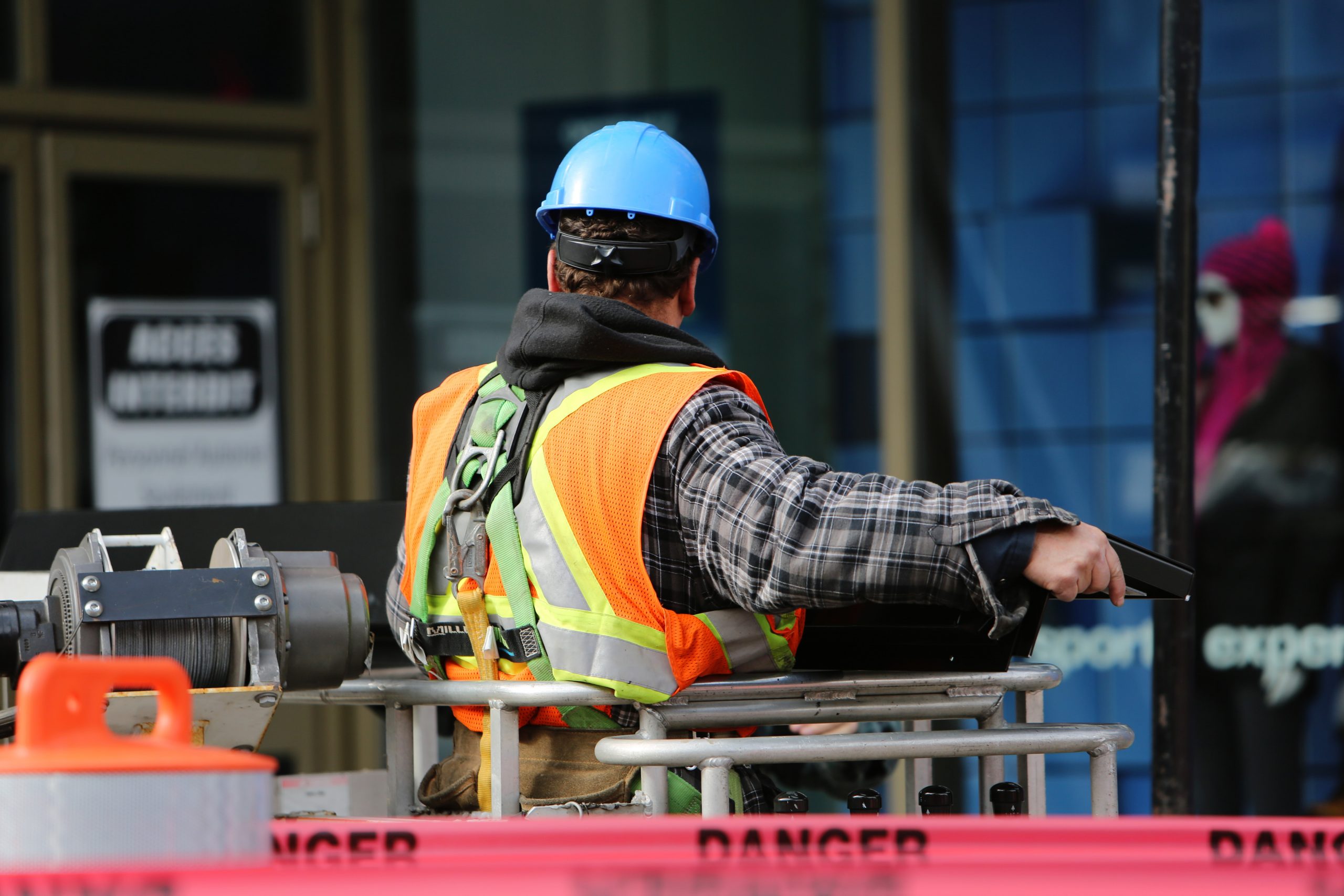
The rise in prices of materials in the construction sector is causing headaches. The Russian invasion of Ukraine exacerbated the energy crisis, which has already plagued the construction sector for months, with prices for raw materials soaring. Recently, the industry has been expressing its concerns more and more intensely. The Ministry of Infrastructure and Transport is monitoring the issue closely, but calmly. Recently, the Minister, Mr. Costas Karamanlis, had publicly pointed out that where intervention is needed, it will be done.
At the table of the new meeting of the leadership of the ministry with representatives of the technical companies, next week, the proposals of the contractors will be put more specifically and studied, in order to explore mutually acceptable solutions, which will ensure the completion of projects.
Experienced market executives estimate that the most at risk projects are those of the smaller contracting authorities, i.e. municipalities and regions, in which the “gangrene” of unreasonably high discounts remains to a large extent. In many cases, these exceed 40% or even 50%, with the result that the implementation of the projects hangs on a thread, as they will be detrimental to the companies that have undertaken them.
The works for which the bids were submitted before the start of the price increase rally, that is, even two years ago, are also included in this picture, given that the competitions in the Greek reality are issues for nerves of steel. Today, rising material prices, delays in supplies, and the murky landscape created by the war have slowed the pace of project execution.
A rally of price increases
Even before the invasion of Ukraine, the rise in prices for building materials was at a record high. According to Hellenic Statistical Authority – ELSTAT data, in January, the general price index for construction materials of new residential buildings increased by 7.3%, compared to the same month of 2021, compared to a small increase of 0.3% when comparing the respective indices of the year 2021 with 2020. Champions then, following the surge of electricity by 56.7% and diesel by 26.3%, was reinforcing iron with an increase of 17.4%, copper pipelines with 14.3% , copper pipes with 12.5% and bricks with 10.4%.
Today, after the effects of the war, which unfortunately has an unknown time horizon, it is estimated that the price increases in the majority of construction materials exceed 40% within a year. The jump in gas prices, on an annual basis, by 78.5%, electricity by 71.4% and fuels and lubricants by 23.2%, according to ELSTAT data for February, leave no room for optimism. for an immediate change of scenery, given the inability to predict the duration of this new crisis.
The contractors’ bodies are talking about frantic increases, locating the beginning of the evil in the period of the pandemic, when some of the companies faced problems in the execution of projects. In a letter, three days ago, the Panhellenic Association of Certified Civil Engineers (PEDMEDE) speaks of a rapid appreciation of materials over 18%.
An increase of 200% in the price of asphalt from September 2020 and construction iron by 100% is recorded in a letter to the competent Ministers by the Panhellenic Association of Public Works Contractors (PESEDE). This means that the skeleton of a building that used to cost 1 million euros before the price increases, today costs 1.5 million euros, and the road construction projects, which start every spring, like all other projects, it is noted that “with the current prices are impossible for contractors to implement “.
Proposals for extensions, temporary suspension of work and updates
After yesterday’s meeting, as part of the regular meetings held at the technical level, the leadership of the Ministry of Infrastructure and Transport and representatives of the technical companies, renewed their appointment for next week. The contractors presented their proposals in a general context. Thus, it was agreed to return to the next meeting with specific and studied proposals, in order to explore finding mutually acceptable solutions that ensure the completion of projects.
Warning of a serious risk of termination of public works contracts, along with claims for compensation from the contractors, the Panhellenic Association of Technical Companies (SATE) proposes the granting of an automatic extension of four to six months at the request of the contractors, and further on to establish a “modern and serious price review system”.
For its part, PASEDE increases the time of extension of all schedules to at least 12 months, with the possibility of temporary suspension of work. It also proposes the issuance of new revision rates for the full scope of work, an adjustment of contractor compensation to cover revaluations in cases where they cannot be covered by revision rates, and an adjustment of the study budgets reality.
The proposals of PESMEDE are along the same lines and include the immediate activation of the Committee for the Verification of Public Works Prices, as well as legislative intervention to extend the schedules for implementation of contracts, possibility of suspension by the contractor of work performed for a certain period of time, possibility of suspension of new contracts and the extraordinary possibility of dissolving existing contracts in the event that project budgets increase. Furthermore, the Union calls for a way to seek an adjustment of the contractor’s consideration due to an unexpected change of circumstances, as stipulated in the Civil Code (Article 388).
The question mark of the revision factors
It is recalled, of course, that shortly before the end of last year, by decision of the Minister of Infrastructure and Transport, revision rates were set for about 500 categories of public works, including materials, the excessive increase in price of which was observed for the first three quarters of 2021 and concerns all ongoing projects Specifically for steel, aluminum, copper, asphalt, wood, PVC and polyethylene.
The relevant requests of the technical companies had already started a year before the regulation, but in the meantime the price increases to some extent escalated. That is why the Ministry of Infrastructure and Transport is carefully weighing the possibility of such a decision, especially since the horizon of the consequences of the war can not be predicted.
An automated monitoring and updating system would provide the solution, but at present this does not exist. The relevant process, which will be gradually automated, has been foreseen in the recent revision of Law 4412. The establishment of the Company for Specifications and Pricing of Technical Works and Studies is already at an advanced stage, where the participation of the private sector is also foreseen. A horizontal procedure is established for the monitoring of fluctuations in the prices of materials, as well as the pricing of the works of the technical works, which will ensure the competition in the construction sector from market distortions.
Through the new procedure provided in Law 4782/21, for public procurement, the goal is to reflect in a realistic way in the prices of public works, the current market prices and thus to be formulated based on what is valid in the market in real time.
Latest News

WTTC: Travel & Tourism to Create 4.5M New Jobs in EU by 2035
This year, international visitor spending is set to reach 573 billion euros, up by more than 11% year-on-year

IMF: US Tariffs Shake Global Economy, Outlook Downbeat
IMF slashes global growth forecast to 2.8% as U.S. tariffs create uncertainty and ‘negative supply shock

First Step Towards New Audiovisual Industry Hub in Drama
The project is set to contribute to the further development of Greece’s film industry and establish Drama as an audiovisual hub in the region

Airbnb Greece – Initial CoS Ruling Deems Tax Circular Unlawful
The case reached the Council of State following annulment applications filed by the Panhellenic Federation of Property Owners (POMIDA)

Mitsotakis Unveils €1 Billion Plan for Housing, Pensioners, Public investments
Greek Prime Minister Kyriakos Mitsotakis has announced a new set of economic support measures, worth 1 billion euros, aiming to provide financial relief to citizens.

Alter Ego Ventures Invests in Pioneering Gaming Company ‘Couch Heroes’
Alter Ego Ventures' participation in the share capital of Couch Heroes marks yet another investment by the Alter Ego Media Group in innovative companies with a focus on technology.

Corruption Still Plagues Greece’s Driving Tests
While traffic accidents continue to claim lives on Greek roads daily, irregularities and under-the-table dealings in the training and testing of new drivers remain disturbingly widespread

Pope Francis Died of Stroke and Heart Failure Vatican Confirms
As news of the official cause of death spread, tributes poured in from across the globe. The 1.4 billion-member Catholic Church is united in grief, remembering a pope who championed inclusion, justice, and compassion

Increase in Both Museum Visits, Revenues for 2024
As expected, the Acropolis was the top archeological site in the country, followed by Sounion, Mycenae, the ancient theater of Epidaurus, and Vergina in northern Greece

Where Greece’s Tourists Come From: A Look at 2025’s Top Visitor Markets
The United Kingdom continues to hold the top spot as the largest source of incoming tourism, with 5.6 million seats booked for Greece this summer — up 2.2% from last year. This accounts for 20% of all international air traffic to Greece
















![Ξενοδοχεία: Μεγάλο το ενδιαφέρον για επενδύσεις στην Ελλάδα – Η θέση της Αθήνας [γραφήματα]](https://www.ot.gr/wp-content/uploads/2025/03/Athens-hotels-90x90.jpg)
























 Αριθμός Πιστοποίησης
Αριθμός Πιστοποίησης